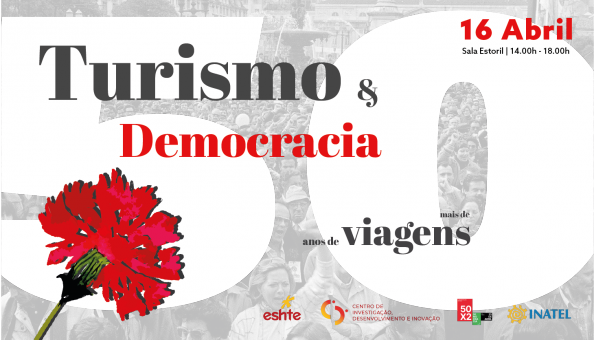Seminar | Tourism and Democracy, (over) 50 years of travel

In an initiative of the Centre for Research, Development and Innovation (CIDI), the Estoril School of Hospitality and Tourism (ESHTE) is joining in the celebrations of the 50th anniversary of the Revolution of April 25, 1974, by organizing the Seminar Tourism and Democracy, (more than) 50 years of travel, which will take place on April 16, 2024, in the Estoril Room of ESHTE, between 2pm and 6pm.
As was the case in other sectors of Portuguese society, tourism during the long years of the Portuguese Estado Novo was heavily regulated according to the propaganda and ideological profits it was supposed to generate. The particularities and intrinsic advantages of the activity were evoked at key moments of the regime, as happened, for example, at the inauguration of the National Propaganda Secretariat, on October 26, 1933, during which Salazar recalled "the obsequious (...) Portuguese hospitality" or, in various public acts, in which it was taught that the "international prestige of a nation is a consequence, in certain aspects, of its tourism organization", as mentioned by António Ferro, in February 1940, at a meeting with members of municipal tourism commissions.
Shortly after the Carnation Revolution, the then President of the Republic, General Costa Gomes, announced, at a special session of the UN General Assembly, the intention and capacity of the new Portuguese political paradigm to fulfill all the international commitments to which it was bound, expressing the will to intensify international economic and political relations, of which tourism would be one of the most obvious examples. As a result of this ambition, on July 8, 1976 Portugal became a member of the World Tourism Organization.
The freedom and democracy achieved half a century ago facilitated the development of a sector that quickly became one of the largest contributors to the country's Gross Domestic Product and employment, while allowing millions of tourists to visit the country every year.
The Seminar Tourism and Democracy, (more than) 50 years of travel aims to reflect on these dynamics and is therefore inviting proposals for electronic posters. See more
Registration until April 14, 2024 (here)









